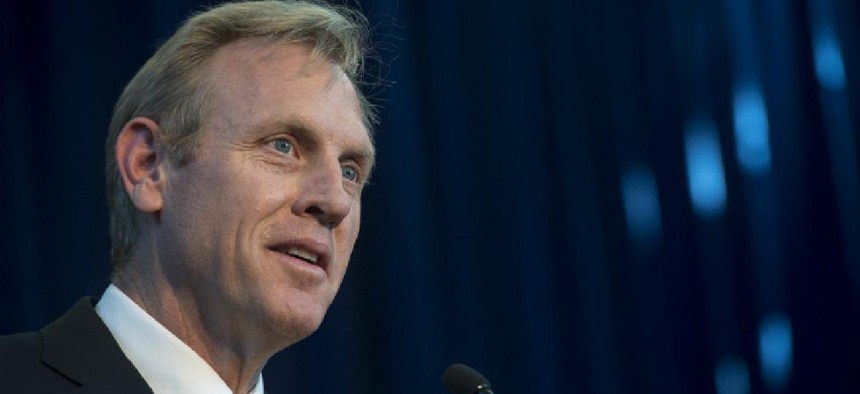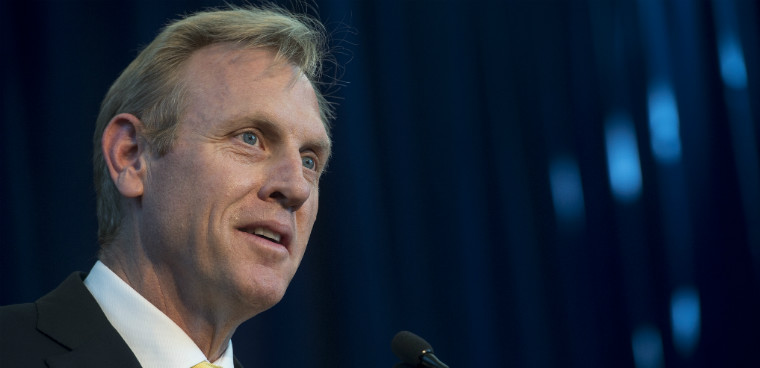Shanahan touts Army Futures Command

Deputy Defense Secretary Patrick Shanahan implored all of DOD to "remove obstacles" from the path of Army's new modernization command, Futures Command.

Deputy Secretary of Defense Pat Shanahan. (DOD photo by Air Force Tech. Sgt. Brigitte N. Brantley)
Deputy Defense Secretary Patrick Shanahan urged Congress and the whole defense establishment to support the Army's new modernization command.
"Integrate Army Futures Command into your processes, relentlessly hunt for the talent they need, remove obstacles from their path, advocate and build momentum for them within the building, throughout the government, on the Hill and within industry. And focus on their output not their process," Shanahan said during a speech at the AUSA conference Oct. 10 in Washington, D.C.
The comments come nearly a month after Congress questioned whether the Army's decision to stand up a new organization to tackle tech modernization was the best solution -- both economically and practically.
House Armed Services Subcommittee on Readiness Chairman Joe Wilson (R-S.C.) said he was "not persuaded a new command is the right answer," and Ranking Member Rep. Madeleine Bordallo (D-Guam) wondered whether the Army was just "creating more overhead that would slow down an already cumbersome process" at a Sept. 13 hearing.
Shanahan's speech conveyed that the new command has support and clout at the top levels of the Pentagon, but he cautioned that the work must be done properly.
"It will take more than a thoughtful organization design to succeed," Shanahan said, adding that product and performance were essential and that the Army should recruit the right people and only pursue capabilities that will "dominate and win."
"This is not about developing the perfect weapons system, this is about delivering lethality to our soldiers as quickly as possible, which whenever possible means leveraging existing technology in new ways," he said.
At the same time, the command needs to attract veteran innovators.
"Futures Command can't be everyone's first rodeo," he said. "We need people that have successfully given birth to something new, with the knowledge and experience to innovate, make decisions, execute a successful program."
But, as 2020 budget season looms, all of this support from the Office of the Secretary of Defense won't necessarily translate into more resources.
"As pressing as the threat is, we will not be handed a blank check," Shanahan said. "Fiscal discipline and performance will determine whether we will be able to execute our [national defense] strategy."



